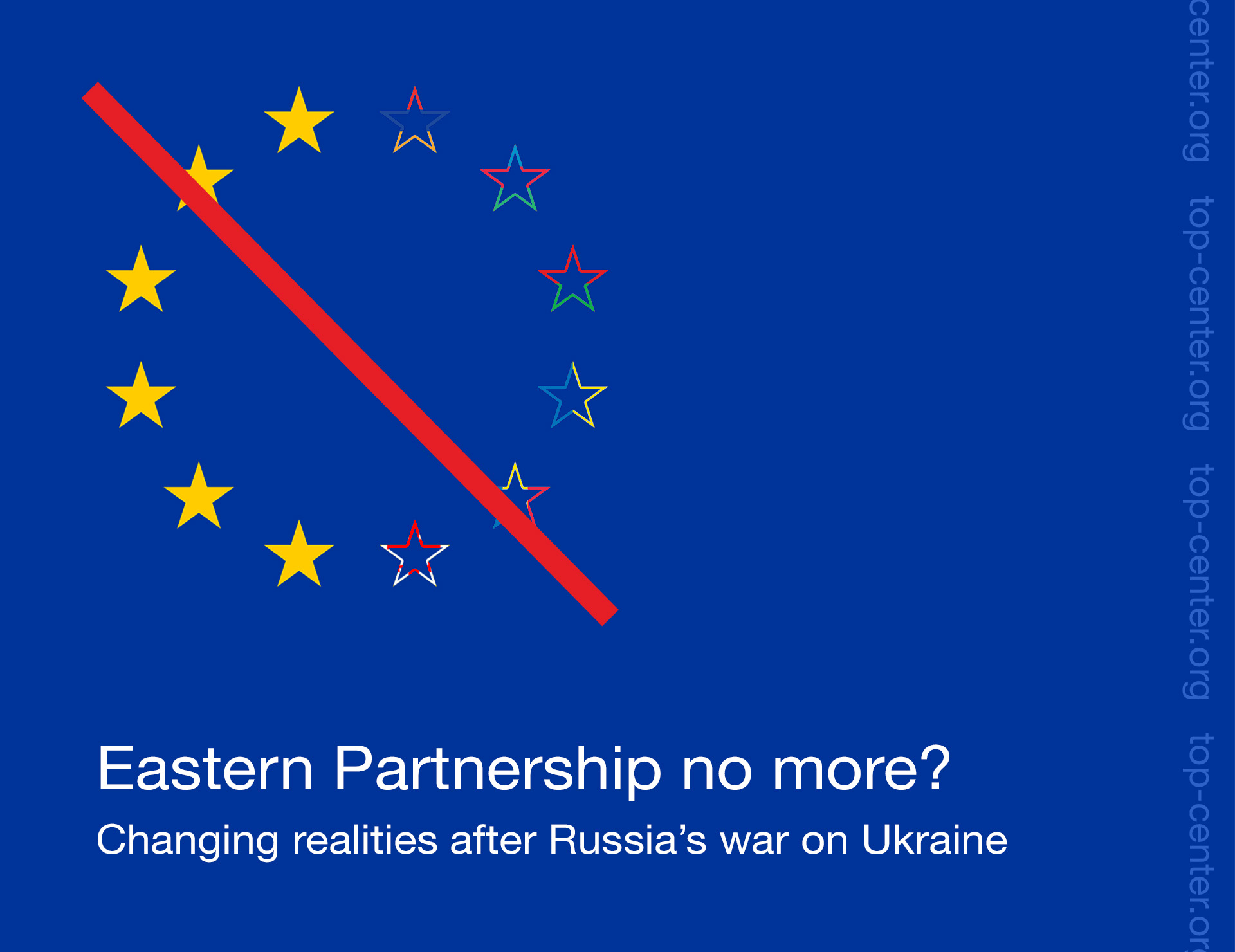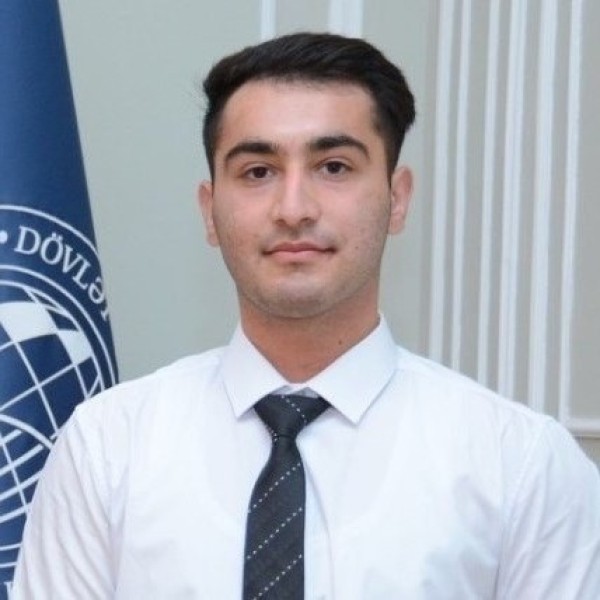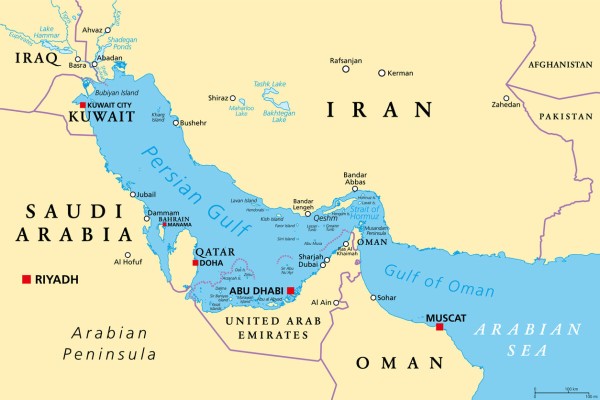Eastern Partnership no more? Changing realities after Russia’s war on Ukraine

In the face of substantial geopolitical changes that followed Russia's military attack on Ukraine, the European Union was left with no choice but to recalibrate its long-standing neighborhood strategy accordingly. The recent change of course in the EU’s foreign policy has been accompanied by the rapid development of relations with Ukraine in particular and Eastern Partners (Armenia, Azerbaijan, Georgia, Moldova as well as Ukraine) in general. Not only did the EU provide Ukraine with €2.5 billion in financial assistance through the European Peace Facility to purchase lethal and non-lethal equipment for the Ukrainian army and thereby made an exception to its principle of not providing arms in a war for the first time. But it also acted rather swiftly on the Ukrainian application for EU membership. Kyiv applied for membership on 28 February while being at a full-fledged war with Russia and was handed the questionnaire as early as April 8. Brussels granted Ukraine candidate status already on June 23.
After Ukraine handed in its application, Moldova and Georgia quickly followed suit and submitted their membership applications on March 3 upon which they received the EU questionnaires on April 11. While Moldova received its candidate status on the same day as Ukraine, Georgia is yet to address the priorities set out in the Commission’s opinion on its application before it can be granted the same status. Even though Georgia fell short of receiving the candidate status, its aspirations to join the EU were largely recognized by member states and it was provided with a clear timeline as to the implementation of its reform agenda and the re-review of its status for candidacy.
There have also been some positive developments in the EU’s relations with Armenia and Azerbaijan. On July 18, the President of the European Commission Ursula von der Leyen and Azerbaijani President Ilham Aliyev signed Memorandum of Understanding on a Strategic Partnership in the Field of Energy which not only recognizes Azerbaijan as a reliable energy partner but also expresses the parties’ willingness to deepen mutual cooperation in the near future. Some milestones have been reached in Armenia-EU relations as well, the most significant of which is perhaps the entering into force of the Comprehensive and Enhanced Partnership Agreement on 1 March 2021. Despite all this progress, it would be utterly wrong to equate (perhaps even compare) the relations between these two countries and the EU to the ones existing between the Associated Trio (Ukraine, Moldova, and Georgia) and the EU. Azerbaijan and Armenia are nowhere near receiving candidate status for the EU membership in a stark contrast to the Associated Trio as the two countries are not interested in a full-fledged integration into the EU acquis due to different domestic development trajectories or restrictive geopolitical environment.
As the disparities among the EaP countries have only become more noticeable against the background of the ongoing war in Ukraine, many have questioned the relevance of the EaP program, proposing different scenarios as to how the EU might react to the changing circumstances. Some maintain that the new reality calls the very existence of the EaP into question since this platform has been established to foster relationships between the EU and partner countries without the promise of potential membership, which does not seem to be the case for three of the six EaP countries anymore. Accordingly, they expect the EaP to be dissolved and replaced with an institution that is more relevant to today’s political realities. It might indeed be nearly impossible for the partners to exist together under the EaP flag because they pursue largely different goals in terms of their integration with the EU. Such differences have surely long existed amongst the partners, Azerbaijan and Armenia acting rather unwilling towards the integration with the EU and the Associated Trio seeking the highest degree of integration possible, namely an eventual EU membership. Despite the varying interests of these countries on this very matter, the EU has been insistent on the use of a common framework (the EaP) in its relations with its partners. All the while it has recognized the considerable differences amongst its partners and tried to accommodate these through the principles of “inclusivity” and “differentiation” . Through the application of the principle of differentiation the EU has given special recognition to the Trio’s aspirations as well as to its concerted efforts for deeper cooperation/integration with the EU. At the same time by mentioning the principle of inclusivity the EU has kept the possibility open for other partners (Azerbaijan, Armenia, and Belarus) to benefit from enhanced cooperation likewise once they are eager to pursue this path. The main argument now is that interests of Eastern Partners could no longer be reconciled with each other under the EaP framework as the gap between the Trio and other EaP countries has become too large to be simply ‘filled’ with the principles of inclusivity and differentiation. According to this logic, the further existence of the EaP could not be guaranteed due to the increasing heterogeneity amongst partners and this platform would not be the most optimal one for the EU to pursue its policy goals vis-a-vis its candidate states either.
The creation of the Partnership for Enlargement - a new framework exclusively for the EU candidate states and the inclusion of the Trio in this newly created forum have been suggested as a possible way out of this dilemma. The creation of such a framework seems to be associated with some benefits both for the EU and the Trio. This would, for instance, not only make it easier for the EU to implement common policy targeted at its candidate states but also provide those candidate states with more incentives to move forward with their reform process.
As appealing as the establishment of the above-mentioned partnership might seem, this would most likely lead to the dissolution of the EaP and would have undesirable consequences for the EU foreign policy. The dissolution of the EaP would result in a significant loss of influence in the South Caucasus for the EU and would thus contribute to the already growing Russian influence in the region. As the end of the EaP would signal the EU’s unwillingness to get involved in the region (even if it may not exactly be the EU’s intention), Azerbaijan and Armenia would have to react accordingly by distancing themselves from the EU and looking to deepen their relations with other countries in the region, most probably with Russia. To be sure, Russia would be ‘more than willing’ to fill the gap left by the EU in the region by ‘deepening its cooperation with these countries. In fact, Russia has not necessarily refrained from coming up with regional cooperation frameworks for the South Caucasus even while the EaP still stands. Moscow’s strong support for the “3+3” format would be a clear example of that. On 22 February, Russia signed a declaration on allied interaction with Azerbaijan which exemplifies yet another attempt of Russia to build up its influence in the South Caucasus by ‘deepening cooperation. The absence of the EU from the region would only facilitate this process for Russia, decreasing the chances of Azerbaijan and Armenia to resist Russian influence. Moreover, without the EaP the EU would lose its soft power over Azerbaijan and Armenia, which it has successfully applied during the recent peace talks between the parties, emerging as an alternative to Russia in the regional peacemaking process. Consequently, Russia’s role in the peace negotiations between Azerbaijan and Armenia would once again increase, which would enable Russia to exercise greater control in the region holding sway over the resolution of the conflict. Therefore, it would be a grave policy mistake for the EU to discontinue the EaP without having come up with an alternative framework for the South Caucasus.
Having said that, there are strong indications that the EU will keep the EaP in place for the time being not least because doing otherwise would prove to be a politically and economically costly option for the Union. Should the EU discontinue the EaP, it will have to design two distinct frameworks to conduct its relations with the EaP countries as was argued above. In this context, a more realistic scenario could be that Brussels decides to keep the EaP alive under its well-known principles of inclusivity and differentiation. The granting of candidate status to Ukraine and Moldova (potentially to Georgia in the future) is merely a symbolic act (a morale booster for Ukraine and a strong signal against Russia) and does not have the expected political significance for the EU. On May 9, French President Emmanuel Macron, for instance, clearly stated that even if such status was given to Ukraine, it would not change the reality that they would still need several decades to actually become a member. When asked about the membership prospect of Ukraine in the EU, German Chancellor Olaf Scholz’s foreign policy adviser, Jens Plötner made a rather similar statement to Macron’s: “Just because you’re attacked doesn’t automatically mean your rule of law improves. The problems Ukrainians have suffered from are structural, they’re still there and they must be dealt with.” Plötner’s comments show that while the EU once again finds itself trapped in rhetorical commitment to the accession of Ukraine and the other Trio countries, there still exist serious concerns, among others, the EU27’s absorption capacity and security challenges in and around Ukraine. This is to mean that Ukraine and Moldova’s newly received candidate status in reality might change a little for the EU and its policy towards these countries and thus might not necessitate making drastic changes to the Union’s partnership strategies. All in all, many will depend on the direction of events in Ukraine and its possible impacts on the European security system.







